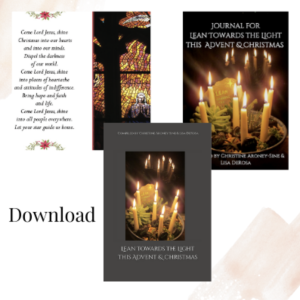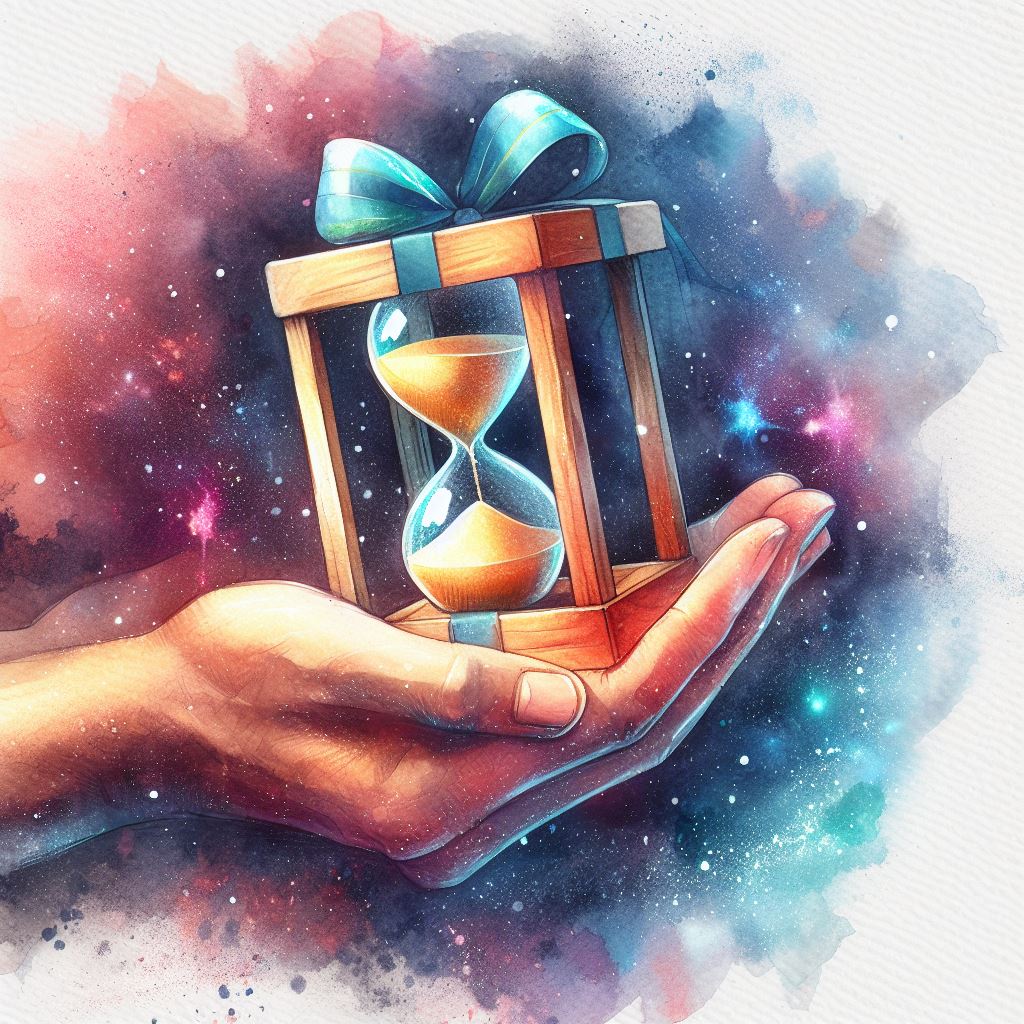by John van de Laar
When you look back over your life, what moments stand out? In my experience, the people, places, and experiences that I remember most clearly and fondly are those that happened in seasons of slowness, attention, and appreciation. Often there was a period of waiting before the memorable event and usually there was a sense of time expanding. The usual pressures of my daily routine seem to lose their urgency and I had time to savour the moment.
But I have to admit that most of my life does not play out like this. Like so many people across the planet, I spend far too much time and energy rushing. Too often my life is a series of quick dips into consecutive experiences with little time to enjoy them, let alone linger in their goodness. That’s why I have grown increasingly committed to observing the seasons of the liturgical calendar and the calendar of earth-based spirituality. And I particularly appreciate entering into Advent as the start of my year and as a time of intentional and mindful waiting.
OUR LOST CAPACITY TO WAIT
In the last few years, I have become deeply aware of the pace of life in the 21st Century. The effectiveness of business is measured in quarters and of leaders in days. Products arrive and are replaced by upgrades at a startlingly fast pace. Delayed gratification is a long-lost concept, but in all the rush and impatience we fail to see the devastation that results.
We need to recover the lost art of waiting.
It’s not that we don’t ever experience waiting in our lives. In religious circles especially, it can sometimes seem like all we do is wait. If the primary purpose of our faith is to attain a blissful life after death, then it becomes all too easy for this life to become little more than a cosmic bus stop on the way to glory. We may still enjoy our work, give our best to our community, and love our families well. But beneath it all there can be a lingering sense that it’s all transient and therefore ultimately meaningless because the really important thing is the next life for which we wait. Rather than lead us into a richer and deeper experience of life, waiting like this robs us of our capacity to live fully, intentionally, and vibrantly.
Sometimes we get so caught up in the adrenalin of a fast-paced world that waiting becomes unthinkable. To wait is to miss opportunities, lose money, and watch life’s excitement pass us by—or so we’re told. FOMO—‘Fear Of Missing Out’—is a real 21st Century condition that keeps us in constant motion in search of the next thrill, the next new discovery, or the next big break. But when we lose our capacity to wait, we lose the deep, gentle, and profound joy of anticipation, the excitement of preparing ourselves for what’s to come, and the wonder of imagining the sweetness of that for which we wait. We begin to see our longings as a problem, especially if they are not fulfilled immediately. And when there’s no longing, no anticipation, and no waiting, our growth as human beings gets severely stunted.
WAITING’S GIFTS
But when we learn to wait well, actively, and intentionally, we receive a whole array of gifts. And that’s why this Advent season is so important. Advent is designed around the spiritual discipline of waiting. It engages our longing for a better world and better lives, and it invites us into the mystery of incarnation. As we wait for the Christmas celebration, we are invited to engage actively with the divine work of salvation, restoration, and new creation that is always happening within us and around us.
When we make waiting a spiritual practice, we always end up facing the parts of ourselves that demand instant gratification. Our grumpiness, selfishness, and impatience come to the surface, and we are given the opportunity to listen to them and learn from them. When we have identified the source of our restlessness, we are able to work with it to find a place of greater calm and comfort in waiting. And that, in turn, opens us to the gifts of waiting—the anticipation, excitement, longing, and growth that waiting offers.
LEARNING TO WAIT
So, how do we nurture the spiritual practice of waiting? Here are a few suggestions, but feel free to add to this list.
- Be mindful of the urge to rush ahead to quick and easy gratification. When you feel this compulsion, ask yourself where the urgency and haste originate in you and listen to what your inner self is saying. And then make the choice to slow down.
- Engage mindfully and meaningfully with any discomfort that arises around waiting. Listen to what your impatience wants to tell you and reassure yourself that waiting won’t lead to loss but can actually bring benefits.
- Nurture feelings of anticipation, excitement, and longing. Engage with what you’re waiting for—don’t try to put it out of your mind. Imagine receiving what you’re waiting for and enjoy the pleasure and excitement that this brings.
- Use spiritual practices, like the observation of Advent, to train yourself to use times of waiting for spiritual reflection and growth. Let these times teach you things about yourself and about life that you wouldn’t be able to learn in any other way.
- Waiting is linked with hope. So, use the practice of waiting to strengthen and sustain your capacity for hope—even when what you long for seems impossible or absent.
- When the waiting is over and the time for receiving comes, go into it slowly. Make sure to savour the receiving and to be mindful and present to the joy, gratitude, and fulfilment that comes when something you’ve waited for finally arrives.
- In the waiting, learn to be grateful for what you already have or experience. And be present to the things that make you feel most fully alive—loved ones and relationships, your connection with God, others, and the world, your connection with your deepest and most authentic self.
WHAT WAITING MEANS FOR YOU
We live in a world where waiting is extremely devalued. But our world of instant gratification and impatience is not good for our souls. It’s not that we should never enjoy immediate pleasures. But if we never delay gratification, we never get the chance to engage with what matters most and to receive the gifts of anticipation, excitement, longing, and a deeper life that waiting offers.
What value have you found in waiting? What makes waiting more difficult for you? How could the suggestions here help you to become more comfortable with waiting? And what gifts might you enjoy if you were to turn waiting into a spiritual practice?
 This download includes the Lean Towards the Light this Advent & Christmas devotional book, journal, and prayer cards for Celtic Advent, Advent, and Christmas through Epiphany! The Lean Towards the Light this Advent & Christmas devotional spans the season from Celtic Advent through Epiphany on January 6th. The intent is to give us an extended period of time in which to both prepare ourselves for and celebrate the joy of Christ’s birth. The devotional offers a daily reading of either a liturgy, reflection, poem, or prayer that correlates with the journal which includes scripture, questions, and suggested activities for each day. The set of 12 Advent Prayer cards will help you reflect on the Advent and Christmas story.
This download includes the Lean Towards the Light this Advent & Christmas devotional book, journal, and prayer cards for Celtic Advent, Advent, and Christmas through Epiphany! The Lean Towards the Light this Advent & Christmas devotional spans the season from Celtic Advent through Epiphany on January 6th. The intent is to give us an extended period of time in which to both prepare ourselves for and celebrate the joy of Christ’s birth. The devotional offers a daily reading of either a liturgy, reflection, poem, or prayer that correlates with the journal which includes scripture, questions, and suggested activities for each day. The set of 12 Advent Prayer cards will help you reflect on the Advent and Christmas story.

